Search Results
Search
Filter results
Advanced Filters
Your search returned 73 Solutions
-
A scalable assistive technology initiative
The F123 Initiative leverages investments made by thousands of individuals, companies, and governments in free and open-source technologies to make internships, and consequently employment opportunities, that are available in small companies accessible to persons with disabilities.
UNICEF New York, A scalable assistive technology initiative, Brazil -
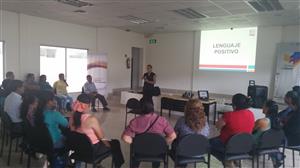
All-Sector-Cooperation creating jobs in thousands of companies
The Ecuadorian Labour Integration Service (SIL) promotes the inclusion of people with disabilities in the open labour market through training and assistance and by working together with the entire socio-labour spectrum. By 2016, some 12,900 people had found a job in 8,355 public and private companies.
FENEDIF - National Federation of Ecuadorian with Physical Disability, Labour Integration Service (SIL) of 2006 National Federation of Ecuadorians with Physical Disabilities (FENEDIF), in partnership with CONADIS, Petroamazonas EP and others, Ecuador, Ecuador -
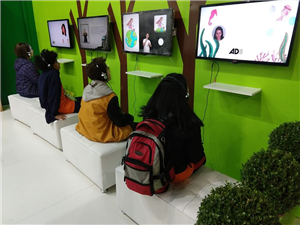
Audio-visual books in multiple accessible formats
"Livros em múltiplos formatos acessíveis" is an audio-visual software that converts books into a range of accessible formats, including Brazilian sign language, in a single version. Complementing this, the NGO Mais Diferenças from Brazil offers training and organizes inclusive readings for people with and without disabilities.
Mais Diferencas - Inclusive Education and Culture, Books in multiple accessible formats, Brazil -
Person-centred support model for university students
Through the UNESCO Chair project students with different impairments manage their own learning process and support needs. They can draw on a variety of resources, including a peer support programme. For teachers and families the chair offers workshops on person-centred educational planning.
Salesian Polytechnic University, UNESCO Chair on Support Technologies for Educational Inclusion, Ecuador -
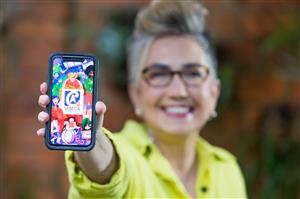
Accessible platform screening events for 12 accessibility features
VEM CA is a free and accessible phone app, developed by the Brazilian NGO Escola de Gente, that informs users where and when accessible events are taking place. The app covers hundreds of events every year and allows users to search by 12 accessible features and in 24 event categories.
Escola de Gente - Communication in inclusion, VEM CA - Accessible Culture App, Brazil -
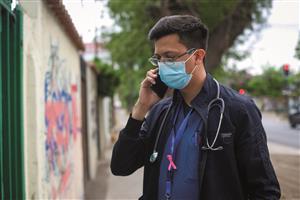
Providing personalized municipal care support for persons over the age of 80
In 2020 the municipality of Cerro Navia, in Chile’s capital region of Santiago, launched ‘Plan 80’ – a person-centred monitoring, follow-up, and support programme for persons with and without disabilities over the age of 80. By end of 2021 the programme had supported over 3,700 beneficiaries.
Cerro Navia Municipality, Plan 80, Chile -
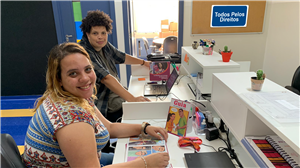
Self-advocacy group of persons with intellectual disabilities
Im Jahr 2011 initiierte das Instituto Jô Clemente in São Paulo, Brasilien, das Projekt "Selbstverteidigung", um Menschen mit geistigen Behinderungen zu befähigen, sich selbst zu verteidigen. Seit 2015 hat die Gruppe von Selbstvertretern einen Sitz im Stadtrat von São Paulo, im Jahr 2022 hatte sie 30 Mitglieder:innen.
Jo Clemente Institute, Self-Defence Project, Brazil -
A business approach to sustainable community living
"Mustard Seed Communities" (MSC) facilitates the development of minimum assisted-living communities and provides employment for persons with disabilities by offering skills training and equipment. In 2015 MSC had 12 residential centres catering to some 400 children and adults with disabilities.
Digicel Foundation Jamaica, Jamaica -
Standards for physical accessibility
Between 2009 and 2015 seven laws and decrees have been passed in support of persons with disabilities. Law 4.934/13, for example, mandates that all public and private spaces must be accessible to people with disabilities. The private sector is incentivised by fiscal benefits rather than obligations.
Saraki Foundation, Paraguay – Saraki Foundation & USAID – Seven laws improving accessibility standards, Paraguay -
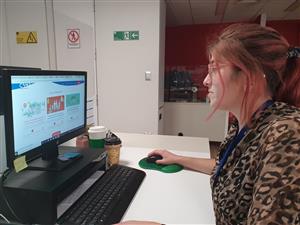
Online accessibility training for civil servants
SENADIS, the National Disability Service of Chile, launched an online accessibility training programme for civil servants, called Preparados para Incluir, that offered three courses centred around accessibility, its legal framework, general principles, and access to ICT.
SENADIS - National Service for the Disabled Chile, Preparados para Incluir (Ready to Include), Chile